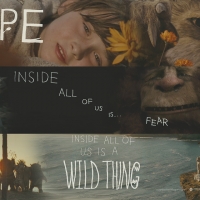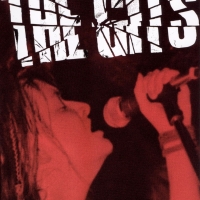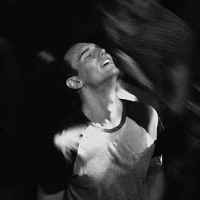Dedicated to and loosely based on his parents' romantic yet tumultuous marriage, Polish director Pawel Pawlikowski's latest film Cold War is a love letter to romance and heartbreak spanning an epic fifteen years against the cultural landscape of the era. Shot in classic 4:3 aspect ratio, Pawlikowski's film aims to narrate not only the intimacy and loss between two lovers, but also the political climate and tension between countries and borders during this time frame. Upon seeking "peasant-style" musicality and talent at an audition in 1949, Polish composer Wiktor (Tomasz Kot) witnesses a young woman with not only a a compelling singing voice but also a striking air of radiance who he comes to know as Zula (Joanna Kulig). The two become deeply involved and decide to plot their escape to Paris together, yet destructive forces larger than themselves pull them apart as they drift in and out of each others' lives throughout the years in France, Germany and Yugoslavia. As vast an undertaking as Cold War is, the film stands out as a brilliant visual piece of work yet loses what remains essential in developing a pulse in his characters in its brief 88-minute run time.
With near every frame looking like it could serve as a remarkable piece of art, Cold War's grainy black and white aesthetic removes you from the present day into a stunning scope of historical and compositional precision. Songs of religion and (loss of) love are carried out by Poland's somber townsfolk amidst a backdrop of fallen grey and dour skies with each facial close-up carrying an emotional weight, honing in on expressions of existential dread. The attention to the film's soundtrack and musical performances, ranging from cool jazz, folk numbers and rock 'n' roll, manage to transport the viewers to a time lost but not forgotten, an utterly gorgeous and refined interpretation of a culture striving to preserve their heritage yet getting forced into the machine of propaganda.
Unfortunately, once you sift through all the stylized and aesthetically-pleasing layers, Pawlikowski misses a critical mark in actually developing any kind of substance and heart within his characters. Zula's choreographed performances and voice are compelling in front of a crowd onstage, yet vulnerability and passion are stripped away during her scenes with Wiktor who plays stoic from start to finish. Their first proclamations of love seem startling as you realize you haven't had an opportunity to witness their growing intimacy, and as time goes on their intertwining exchanges and encounters feel disjointed and void of life. Comprised of a series of seemingly poignant vignettes over a decade and a half, their scenes together are cut so abruptly that it's impossible for the characters to breathe or form any complexities before the next scene starts. At one point does Wiktor lose his temper and strike Zula across the face, Zula relieved at last that there's some degree of emotion stirring inside him, yet once again the film is rushed elsewhere before it has a chance to develop and evolve. With an understanding that the emphasis of the climate of the time is meant to be bleak and harsh, not even the stunning cinematography and soundtrack can leave you feeling more than lukewarm and blasé in Cold War's rushed love story narrative.



